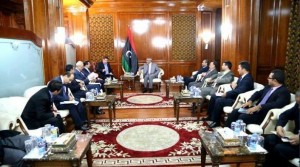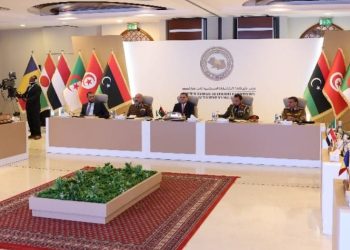By Libya Herald staff.

Tripoli, 4 November 2014:
Head of Libya Dawn’s National Salvation Government Omar Al-Hassi has called for new parliamentary elections. . . .[restrict]Such a move was the only way to end the current chaos in Libya, he said.
“The current House of Representatives (HoR) has lots its legitimacy and is no longer relevant in Libya,” Hassi insisted. “We need to have another election.”
Opponents of the Hassi body argue that Libya Dawn is backed by Islamists who, after their bitter defeat in the June 2014 election, have done everything in their power to usurp the legitimate authority of the HoR and catapult themselves to the forefront of Libya’s political scene.
Hassi went on to say that his “government” was engaged in a battle against the “enemies of the 17 February Revolution”. Their goal was to “restore” the revolution that was “stolen” (by the HoR).
According to him, the HoR’s support of Khalifa Hafter’s Operation Dignity in Benghazi was a major error, and Hafter’s alleged agreement to allow airstrikes inside Libya by foreign aircraft a breach of national sovereignty. The HoR’s alliance with the UAE and Egypt in the “fight against terror” had opened the door for a proxy war on Libyan soil, he said.
“The National Salvation Government” was able to restore stability in Libya,” Hassi claimed, “but to do so, we are asking for the support of the international community.”
That is almost certainly not going to happen. Hassi was named prime minister by a small group of members of the former General National Congress, put at no more than 20, who refused to accept the HoR on the basis that protocol demanded that power be formally handed over to it by Congress at a meeting in the capital before it could start work – which did not happen.
Diplomats accredited to Libya point out that although protocol may not have been followed by the HoR, Hassi’s claim to be prime minister cannot stand since Congress’ own rules – that it cannot appoint a prime minister by less than 120 votes– were not followed.
He, however, sees it differently. “Everyone knows that the West is waiting to see who the victor is on the ground once everything settles,” he said in his election call. “From there, the Western nations will try to determine how best to work with him while maintaining stability in the region. We may not succeed in establishing a pure democracy — but just look at what happened in Egypt.” [/restrict]









